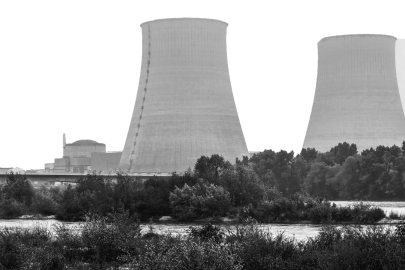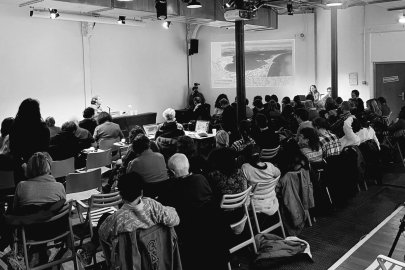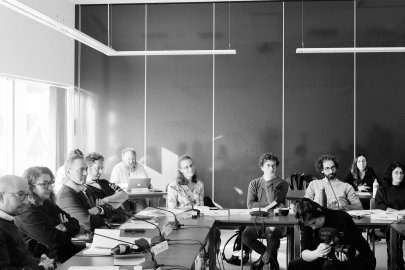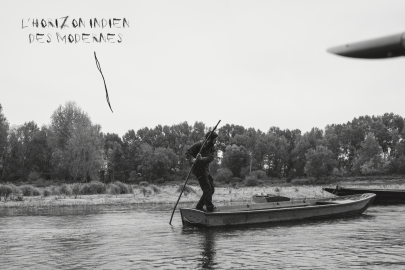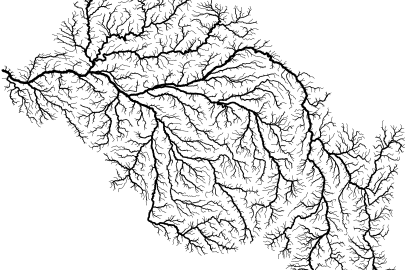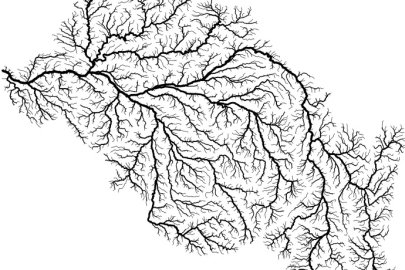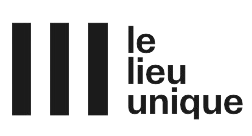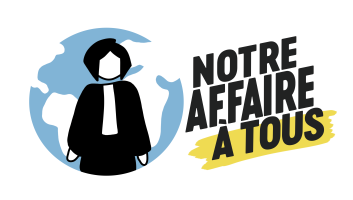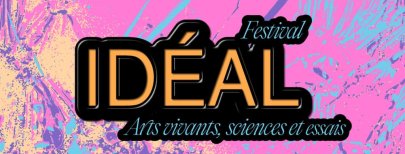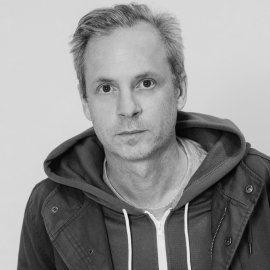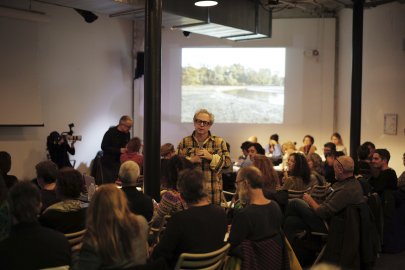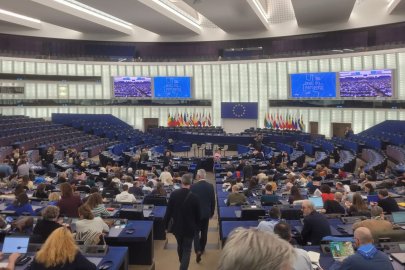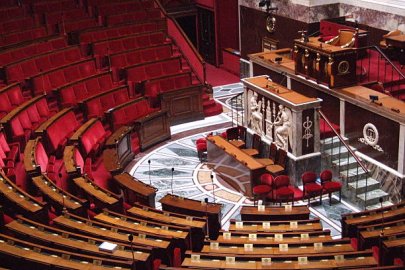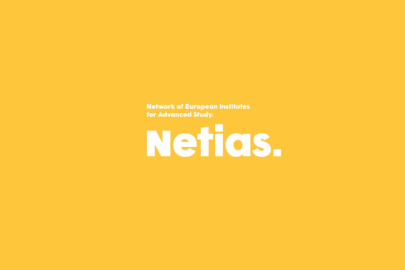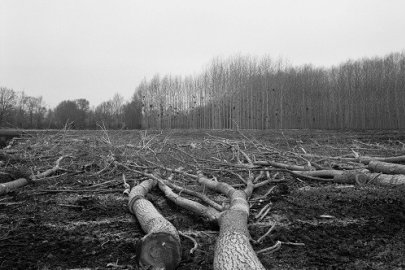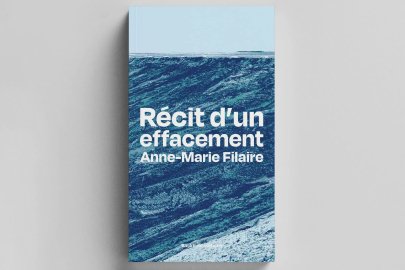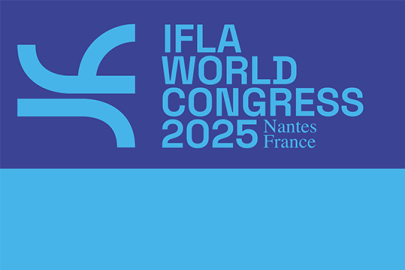For the next three years, from 2023 to 2026, the Institut d'études avancées de Nantes, in partnership with Lieu Unique and Notre affaire à tous, is carrying out the Vers une internationale des rivières et autres éléments de la nature... project. Camille de Toledo, writer and research associate at the Institut d'études avancées (2023-2025 term), is continuing his work on the rights of nature and the legal personalization of ecosystems.
Vers une internationale des rivières... is a mutant, shared, collective narrative that will be punctuated by three key events over three years. The aim is to define, through public hearings, the contours of a transition towards a “terrestrial political economy”, based on the hypothesis of an extension of the rights of nature into the 21st century.
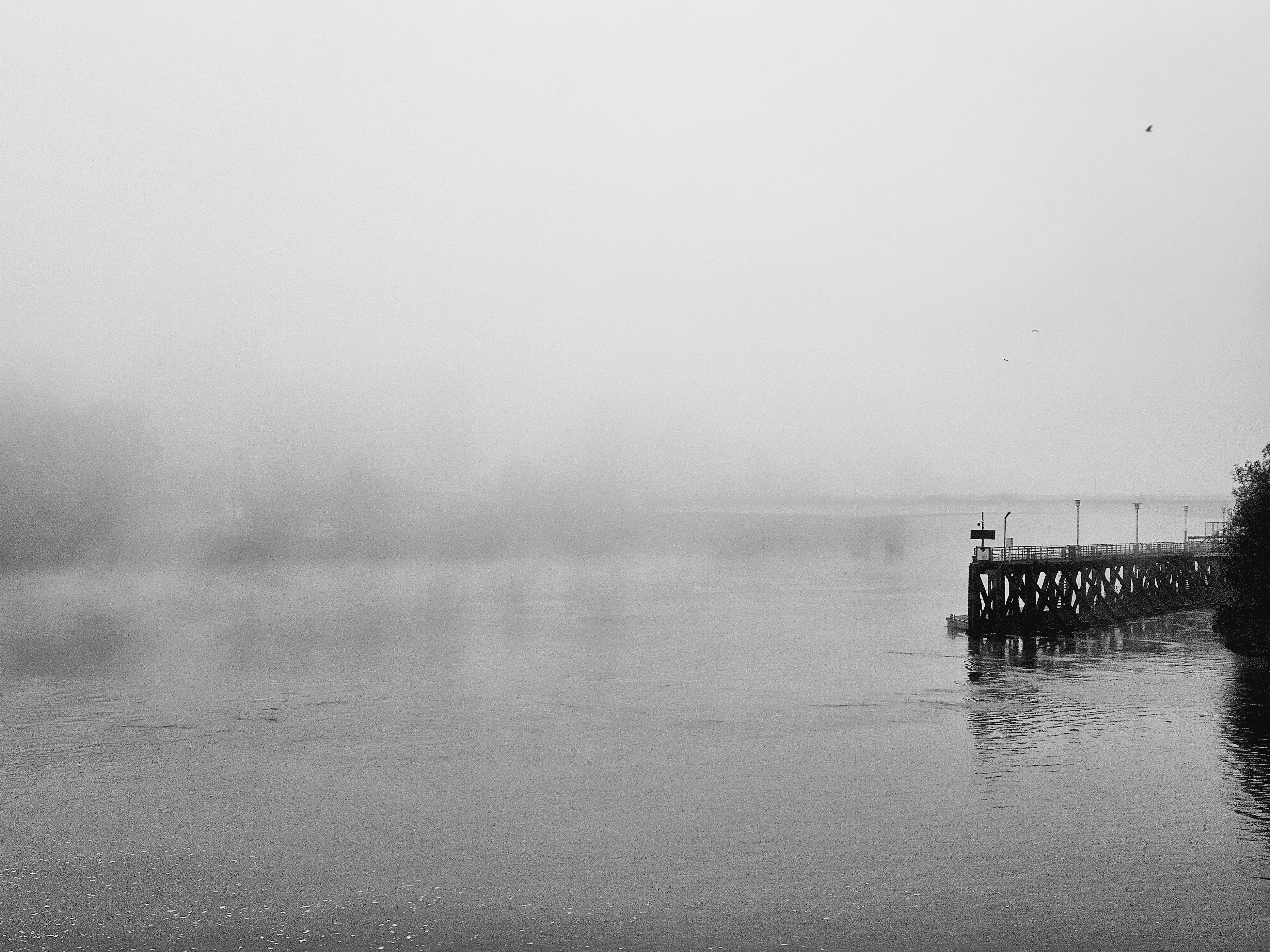
This project unfolds over three years, from 2023 to 2026. Conceived as a collective and evolving narrative, it explores the expansion of nature’s rights and the legal personhood of ecosystems through public hearings and interdisciplinary discussions.
Two key events have already taken place, paving the way for new perspectives. The third and final gathering is scheduled for autumn 2025 at the Lieu Unique in Nantes.
Find the key moments in detail
The origins
L'Internationale des rivières extends to a “chorus of rivers, lakes, forests...” what was proposed in the so-called “Parlement de Loire” process, initiated in 2019 by POLAU - Pôle Arts & urbanisme - and orchestrated by Camille de Toledo, who defines her narrative, artistic, metamorphosis-oriented practice as a “public service of the imaginary”.
Through a cycle of public hearings, between 2019 and 2021, the Parlement de Loire has deployed an instituting fiction to envision the creation of a river parliament, with the aim of recognizing and defending the rights and voices of the Loire. This first stage of the process was completed in 2021, with the publication of “Le fleuve qui voulait écrire” (2021): a book narrated by Camille de Toledo and published by Manuella and LLL. (Les Liens qui Libèrent).
Following the experiments carried out during the Assemblées de Loire in September 2021 in Tours, a collective called “Vers un parlement de Loire...” was formed to open up, amplify and extend this approach to the entire Loire watershed, in dialogue and connection with other processes in France, such as “Assemblée populaire du Rhône”, “Tavignanu Vivu”, “SOS Durance vivante”, or the “Déclaration des droits de la Tet” in the Pyrénées Orientales...
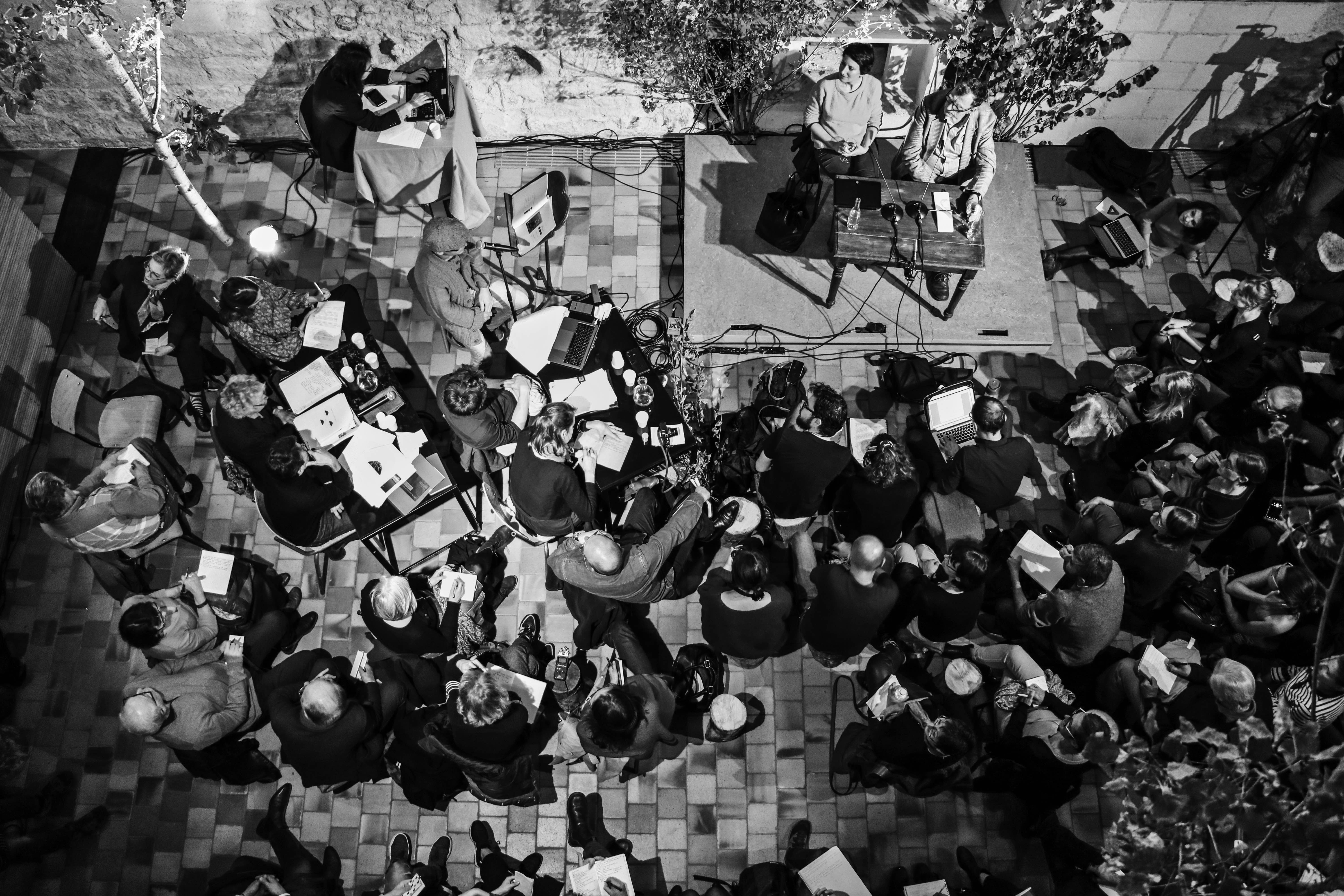
Bruno Latour and Frédérique Ait-Touati auditioned by Camille de Toledo during the first hearings of the Loire Parliament at the Saint-Libert Chapel (Tours), October 19, 2019 © Apolline Fluck
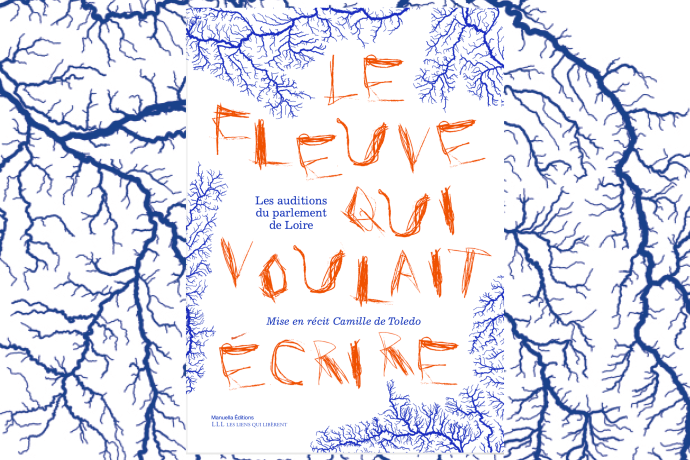
Cover of the book “Le fleuve qui voulait écrire” (2021), written by Camille de Toledo and published by Manuella and LLL (Les Liens qui Libèrent) in 2021.
The story
The approach underlying the Vers une internationale des rivières... project is based on the transformative powers of narratives studied by Camille de Toledo, notably in his latest book, Une histoire du vertige, around what he calls “fictional dwellings”: potential institutions, narratives of metamorphosis... The approach is supported by numerous researchers, including Philippe Descola and Marie-Angèle Hermitte. It seeks to give resonance to a worldwide movement that sees human communities gradually recognizing rights to their living environments, their landscapes, their natural entities of attachment...
Vers une internationale des rivières... is also a collective, processual time to design a future world populated by non-human legal entities, and to transform the circulation of value, by diverting surplus value, to give more power to act and autonomy of action to the entities of nature: in order to institute a counter-power favorable to life, to the long term, to future generations...
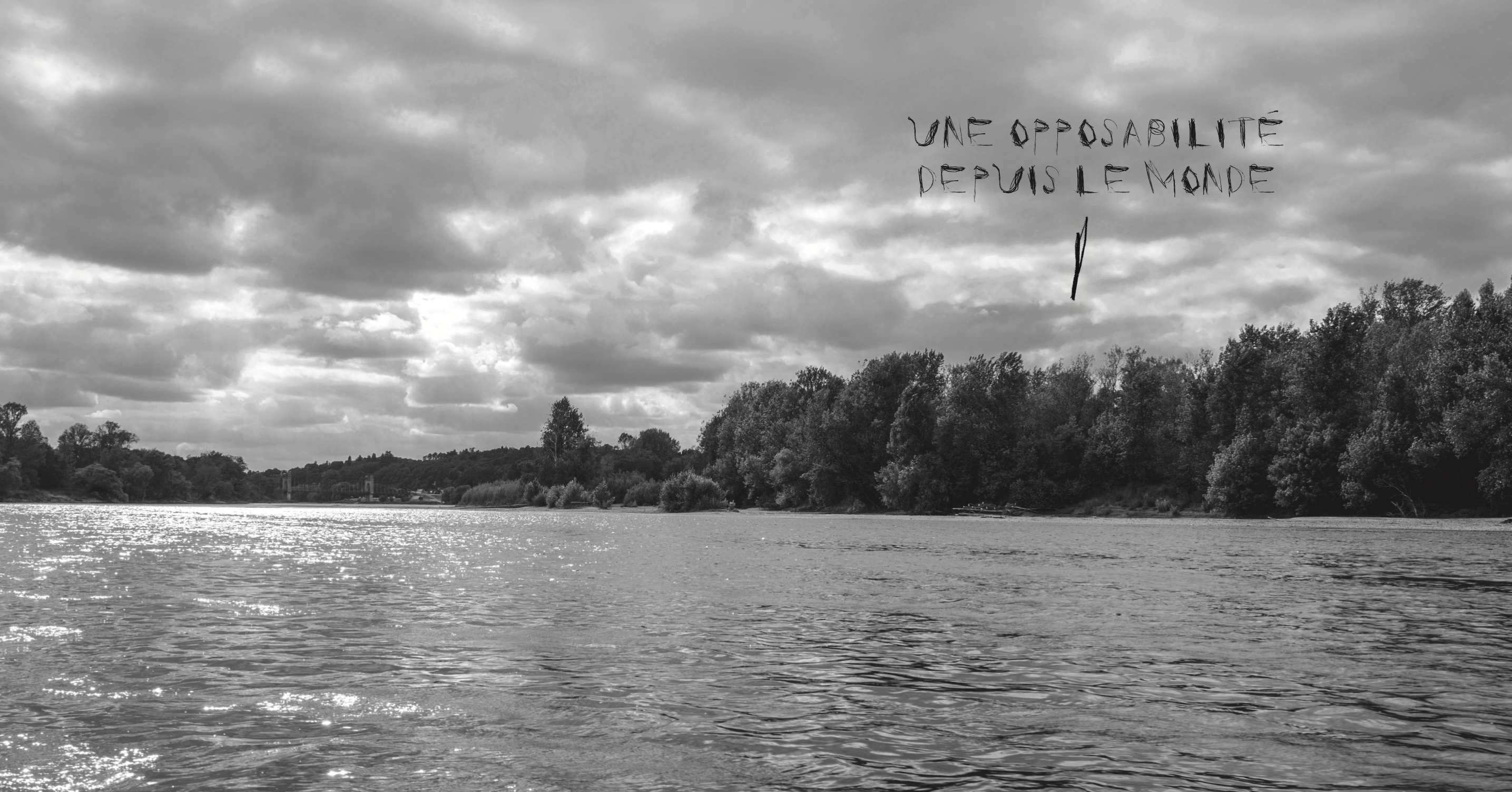
The Council of Witnesses
To lay the foundations for this international project, Camille de Toledo proposes an unprecedented scenario to a council of 12 citizens - the Council of Witnesses: as entities of nature everywhere rise up to claim their rights, the economy as we know it is transformed. Earthly workers” are uniting to topple the edifices of productivity and growth. Do we want this metamorphosis to happen? How can we provoke it, organize it, institute it? How can we draw the contours of this world to come, of this other kind of future where the Earth reclaims its rights?
The Council of Witnesses is made up of 12 faces, 12 lives, from a variety of professions, cultures and generations; they form the Council of Witnesses, whose task it is to record and evaluate the stages of this shift, this story of bifurcation... and the phases of emergence of this new political economy for life.
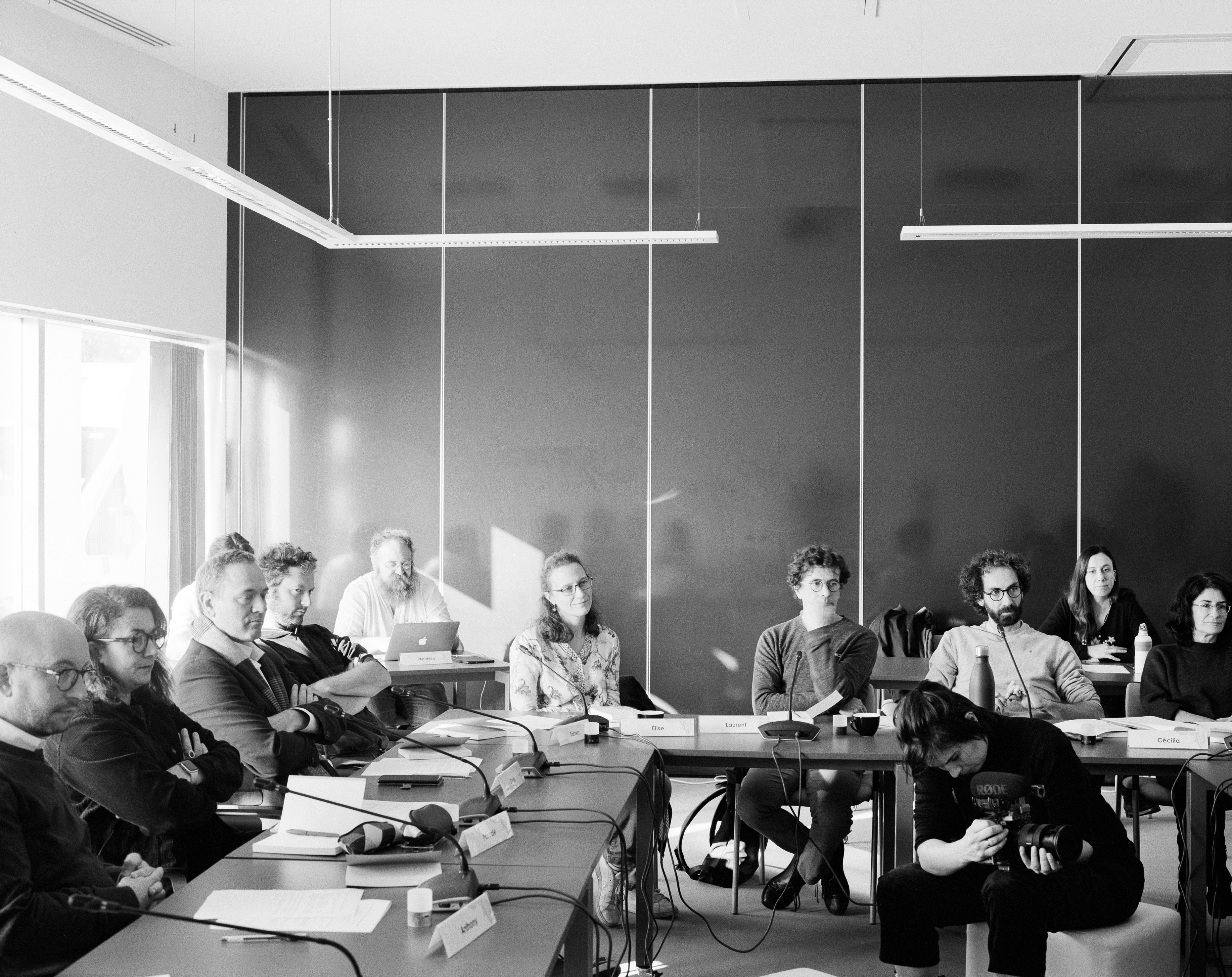
Image : © Anne-Marie Filaire
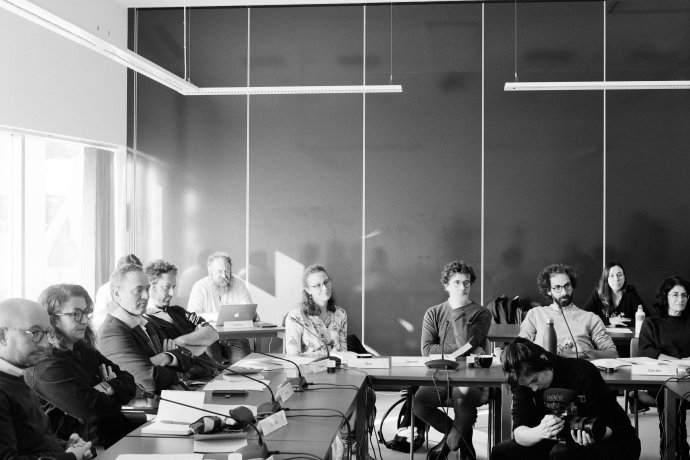
Image : © Anne-Marie Filaire
Associate researchers
Scientific advisors from a variety of disciplines are called on as resources, to document and flesh out the bifurcation scenario proposed by Camille de Toledo to the Witness Council.
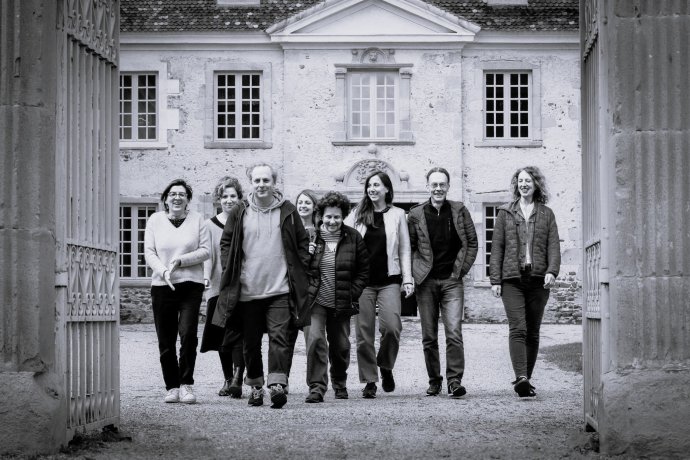
The Pollinators
The project “Towards an international rivers...” is received and transformed by a variety of views, perspectives and sensibilities, including :
Documentary by Camille de Chenay: filmmaker, who directed Nicolas Truong's latest interviews with philosopher Bruno Latour for Arte.
Drawing by Axelle Grégoire, architect and co-author, notably with Alexandra Arènes and Frédérique Aït-Touati, of the book manifesto for terrestrial cartography, Terra Forma (éditions B-42).
In photography, by Anne-Marie Filaire, who published Terres (La découverte, 2020) about the anthropized landscapes of Greater Paris, and took part in various missions for the Observatoire photographique du paysage.
Comic strips with Laurent Bonneau, comic strip author, painter and video artist. Co-author of “Le bruit de l'eau”, “Et il foula la terre avec légèreté” (Futuropolis) and “Ceux qui me touchent” (Grand Angle), finalist for the Prix BD Fnac France Inter.
The project remains open to proposals for resumption, seizure, transformation, extension... following the principles of “open source codes”. In this, it follows Camille de Toledo's commitment to a “public service of the imaginary”.
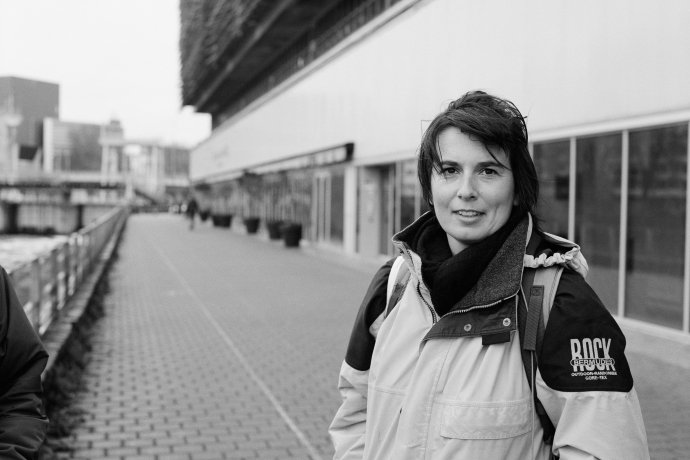
Camille de Chenay pictured by Anne-Marie Filaire
